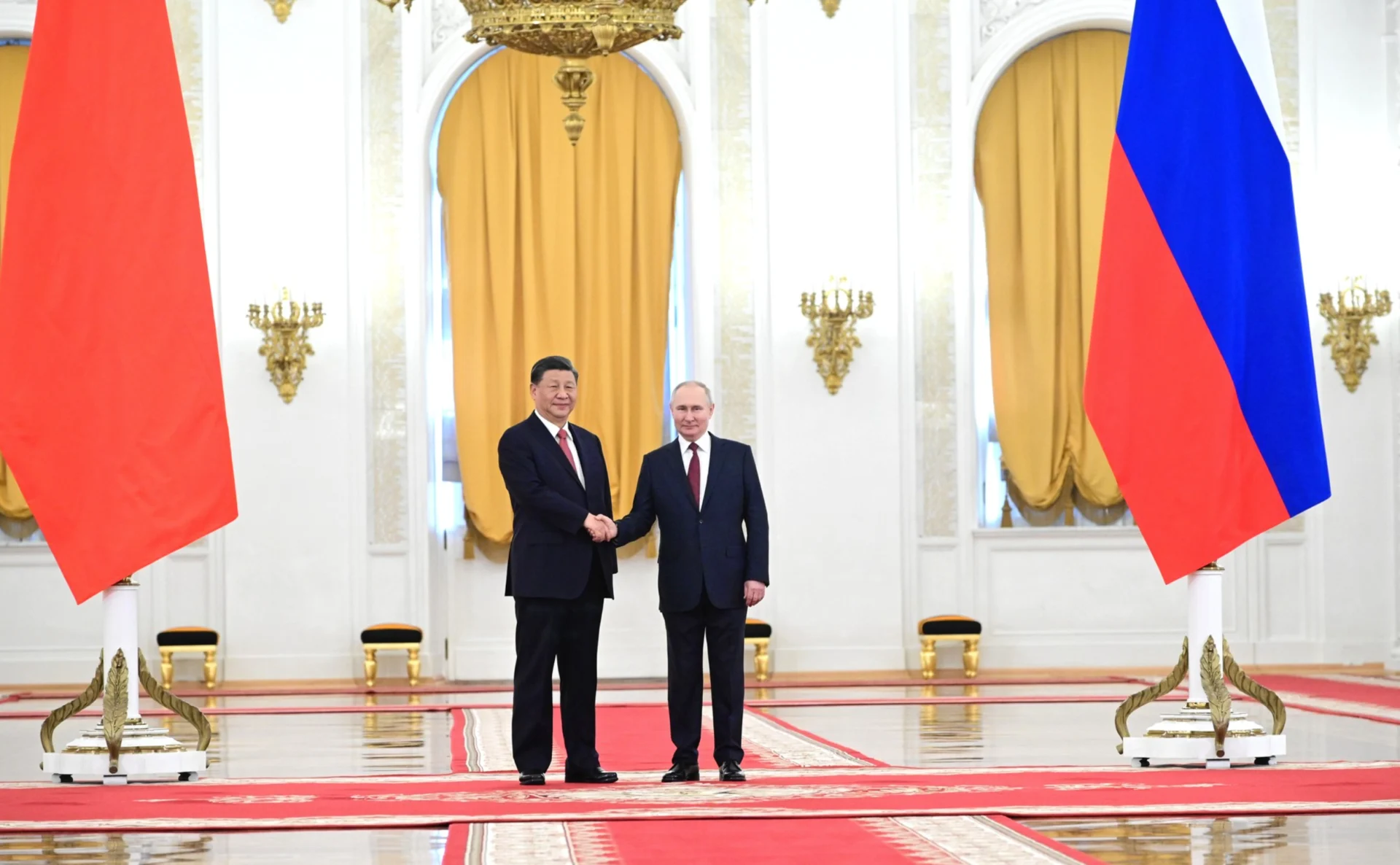Numerous events have fueled the debate on the crisis of the international liberal order and Western democracies. The Spanish philosopher José María Lasalle, for instance, traces the origin of these discussions to three events that have progressively undermined global confidence in the prevailing values and institutions after the end of the Cold War (El liberalismo herido, 2021). The terrorist attacks of 9/11, the 2008 financial crisis and the attacks on the U.S. Capitol in 2021 discredited, according to Lasalle, the foundations of the liberal project: equality before the law, free market and representative democracy, respectively.
It is evident that our century has stubbornly refuted Francis Fukuyama’s prophecy of the end of history. Beyond the events referred to by Lasalle, all endogenous to the international liberal order, we can point to some exogenous ones. These even more clearly demonstrate Fukuyama’s errors in imagining a unipolar or depolarized world, where liberal democracy would establish itself as a global model of decision-making and social organization. Evidence of this has been the rise of a group of countries seeking to challenge Western hegemony in the world system, proposing instead societal alternatives less committed to human rights and democracy.
These countries, today articulated in spaces like the BRICS, have adopted different narratives to justify their disdain for values and institutions such as plurality, tolerance and the separation of powers. Among such narratives stands out the defense of a multipolar world as a recognition of the emergence, in geopolitical and geoeconomic terms, of the nations of the Global South, whose historical, cultural and ideological diversity would reject any imposition from the North. In this sense, multipolar world enthusiasts claim the existence of forms of democracy different from the Western model, as Chantal Mouffe would say, supposedly more legitimate to assert the popular will — despite the lack of autonomous courts, real political opposition, or independent electoral institutions, as in the case of Russia’s “Sovereign Democracy”.
Reducing Complexity?
It is an undeniable fact that the Global South attends to an increasing geopolitical reality, represented by a multitude of nations with a colonial past, once dependent on the North and fragilely integrated into the euroatlantic-dominated international order. It is also indisputable that, due to their economic and demographic patterns, many of these countries play an increasingly important role in global and regional dynamics, from Asia-Pacific to the Middle East and Latin America. However, this does not imply that they can be grouped as a homogeneous bloc, under ideological considerations, oriented to question the “liberal democratic order, on a social, national and global scale”, as Professor Armando Chaguaceda mentions (Sur global y surglobalismo, 2023).
A recent article from Latinoamérica21, written by academic Alberto Maresca, seems to adopt this south-globalist perspective. According to Maresca, it is natural for the growing agency of the Global South countries to displace liberal democracy as a priority. Similarly, for our author, the Global South constitutes both a reality and a utopia, enabling different nations to obtain “positive results” in finance and infrastructure; forge “a horizontal realm of international relations”; and “reduce dependence on the US dollar”, far from any attempt to constitute new “military strategies in the style of NATO”.
According to Maresca, it is a mistake to criticize the Global South for its inherent diversity. My point of view though is that, assuming the heterogeneous character of the Global South —or “Global Souths”, as Chaguaceda would say— is useful to dismantle the myths around this group of countries and their very varied relationships. Firstly, the nations in question, according to established indicators, do not share equal levels of income or human development, even within the same region, a fact that opens the door to asymmetrical and potentially dependent interactions.
Secondly, not all Global South countries reject the “unanimous consensus” criticized by Maresca, essentially based on liberal democracy and human rights. In Latin America, the commitment of the governments of Uruguay and Chile to these values is well known, reflected in their respective positions on events such as the Russian invasion of Ukraine or, more recently, the electoral fraud perpetrated by Chavismo in Venezuela. In Southeast Asia, countries like Singapore and the Philippines have also condemned Russia’s “special military operation”, as well as Hamas’s terrorist attacks in Israel on October 7.
Thirdly, it is difficult to argue that Global South countries maintain “friendly relations” among themselves — as flaunted by Chinese foreign policy, even when they coexist in more or less institutionalized multilateral spaces. Alongside Russia, China and India are two champions of the Global South and the BRICS. Despite this, the two countries have a long-standing dispute over the border territories of Aksai Chin, which has already led to some violent clashes between military forces. The competition for hegemony in the Indian Ocean has also sparked some diplomatic battles between Beijing and New Delhi, who seek to increase their respective influence in the Maldives. A peaceful, stable and lasting association between the powers of the Global South seems, therefore, unlikely in light of such events.
Dismantling Myths
Let us now ask ourselves, based on what has been developed, if it is true that non-Western powers like Russia, China and Iran represent an opportunity for other Global South countries to gain various benefits. In the case of Latin America, Iran is a barely significant trading partner. According to the most recent World Bank data, the value of Latin American exports to the Islamic Republic amounted, in 2021, to just over $3 billion. This amount represents less than 1% of the total regional exports to markets like the United States, according to the same data.
In economic terms, Russia is also a tangential actor for Latin America. According to a report by ECLAC, between 2007 and 2021, the Russian Federation barely figured as a country of origin of Foreign Direct Investment in the case of Guatemala (Foreign Direct Investment in Latin America and the Caribbean, 2022). Similarly, the nearly $6 billion of Latin American exports to Moscow are still far from competing with the trade flows that the region has with the United States, China, Germany, South Korea, or Japan, according to the World Bank.
On the other hand, the People’s Republic of China (PRC) has become one of the most important trading partners for Latin America. According to official data, in Southern Cone nations like Brazil and Argentina, the Asian giant already surpasses the imports and exports of the United States, positioning itself as the main trading partner. However, such relationships between China and Latin America are problematic for at least two reasons. Firstly, because the trade balances of the countries in the region report huge deficits in favor of Beijing. The most recent case is that of Mexico, which has a negative balance of $108 billion in its exchanges with the PRC. Due to this, the Mexican finance minister expressed in recent days: “China sells to us, but does not buy from us and that is not reciprocal trade.”
Moreover, the trade relations between China and some of its non-Western partners are more reminiscent of a North-South — or, if you will, Core-Periphery — exchange than a horizontal “South-South” link. In Latin America, the commercial interests of the Asian giant appear to be essentially extractivist, far from promoting the “shared prosperity” that the Chinese Communist Party celebrates in its discourse. Again, statistics from the World Bank or research centers like Red ALC-China show that the PRC has a great interest in Latin American natural resources, particularly in the mining sector, which has become one of its main suppliers of copper, iron and more recently, lithium.
In another vein, it would be inaccurate to say that Global South countries like China, Russia, Iran and now, North Korea, do not seek the configuration of anti-Western military alliances. The CSTO is a clear example of a defensive organization parallel to NATO, led by Russia and its Eurasian allies. Unlike the Atlantic organization, however, the CSTO aspires to increase the Kremlin’s influence in the alignments and decisions of the countries that make it up. Nor can the informal alliances that these nations maintain among themselves and with other Global South partners be ignored. Thus, the “limitless friendship” between China and Russia recently manifested its military potential by developing joint military exercises within the framework of the Joint-Sea 2024 initiative.
It is also well known the military support that Iran, China and North Korea have provided to Russia to sustain its unjustified aggression against Kyiv. Iranian drones, as well as North Korean missiles and ammunition, have served to shoot down Ukrainian targets, while China’s dual-use technology continues to fuel the Kremlin’s industrial-military complex. Latin America is also a scene of these practices. In recent days, a fleet of Russian ships and a nuclear-powered submarine arrived in Cuba, conducting military exercises on their journey across the Atlantic. Likewise, Venezuela received the Russian Navy’s ship Admiral Gorshkov in July to “deepen technical-military cooperation” between the two countries.
These events reflect the heterogeneity of the Global South and raise questions about the place of China, Russia and Iran within it. As long as this group of countries continues to mutually reinforce their military objectives and establish asymmetrical relationships with other nations, wouldn’t it be more appropriate to integrate them into a kind of “autocratic North”, distinct from the democratic-oriented Western North? The global strategy of these actors calls for an intellectual effort to think of new concepts and adjust existing ones to an accelerating world. It also opens the possibility of conceiving the Global South as a reality not precisely alien to Western values. As Tulasi Srinivas once expressed, discussions about “alternative modernities” should not lead to fundamentalism or particularism, but rather acknowledge that “other democratic and plural alternatives can exist.” (A Tryst With Destiny: The Indian Case of Cultural Globalization, 2002).
Translated by Ricardo Aceves from the original in Spanish.











